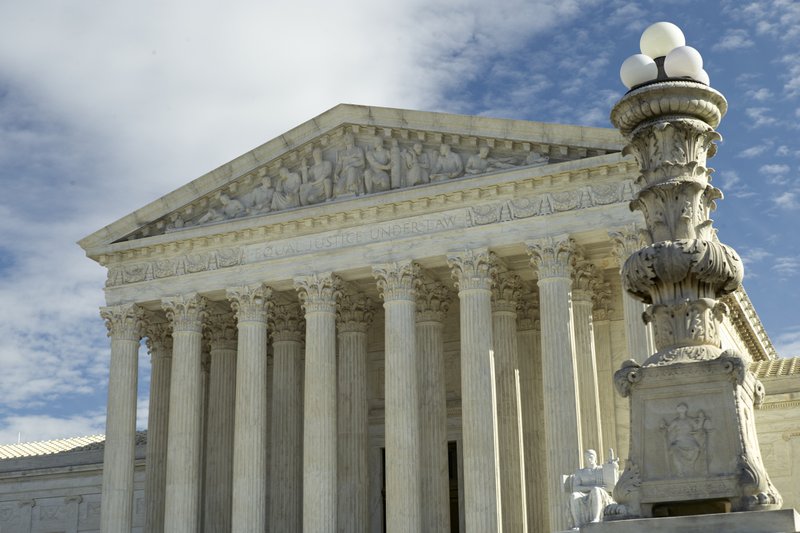It’s a morning of firsts for the Supreme Court, the first time audio of the court’s arguments will be heard live by the world and the first arguments by telephone.
The changes are a result of the coronavirus pandemic, which has made holding courtroom sessions unsafe, especially with six justices aged 65 or older and at risk of getting seriously sick from the virus.
The experiment beginning Monday could propel the court to routinely livestream its arguments. Or the 10 cases over six days could just be extraordinary exceptions to the court’s sustained opposition to broadening the audience that can hear, if not see, its work live.
Cases that will be heard over the next two weeks include President Donald Trump’s effort to shield tax and other financial records and whether presidential electors have to cast their Electoral College ballots for the candidate who wins the popular vote in their state.
The session is set to begin Monday at the usual time of 10 a.m. EDT, when Marshal Pamela Talkin will call the court to order and Chief Justice John Roberts will announce the day’s case. Arguments are scheduled to last an hour as they would generally in the courtroom.
The court chose a somewhat obscure case about whether the travel website Booking.com can trademark its name for its first foray into remote arguments. The lawyers on both sides are well known to the justices and experienced in arguing before the nation’s highest court.
Justice Department lawyer Erica Ross, who once served as a law clerk to Justice Elena Kagan, will be first up. She last argued at the court in late February. She’s planning to deliver this Supreme Court argument, her sixth, from a Justice Department conference room.
She will be followed by Lisa Blatt, a onetime government lawyer who will be arguing her 40th Supreme Court case. Blatt will be at her Washington-area home, she told The Washington Post.
She is known for her colorful writing and speaking style and for her ability to engage in a healthy give and take with the justices. She was also a prominent liberal supporter of Justice Brett Kavanaugh during his contentious Senate confirmation hearings for the Supreme Court.
Each lawyer will get two uninterrupted minutes to make an opening statement, after which Roberts will kick off the questioning. After that, the justices will ask questions in order of seniority, although the longest-serving justice, Clarence Thomas, almost never questions lawyers. Kavanaugh, who joined the court in 2018, will go last.
The court sometimes issues opinions at the start of argument sessions, with the justice who wrote for the majority reading a summary of the opinion and, more rarely, a second justice summarizing a dissent. But in another change wrought by the virus outbreak, opinions are being posted online without any statements from justices. The court will next issue opinions on Thursday.
(AP)











